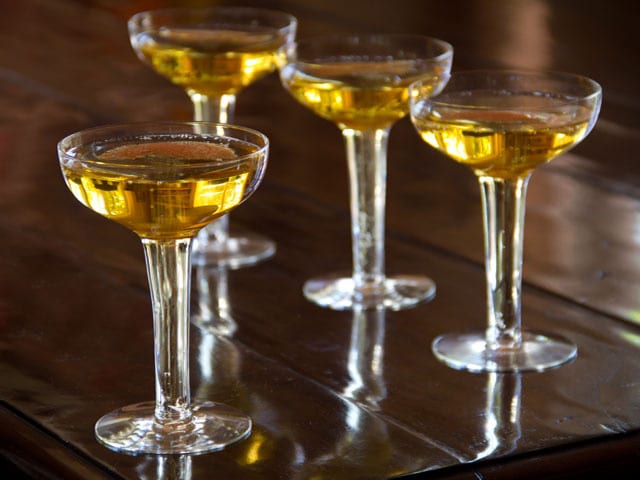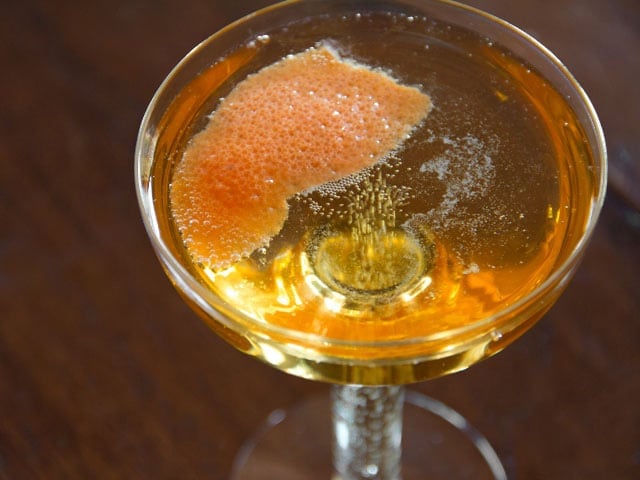
The Passover Potluck is a unique annual online event. I’ve invited my friends, both Jewish and non-Jewish, to share recipes that are kosher for Passover. My goals are simple– to foster mutual understanding between different cultures, to introduce you to my foodie friends, and to share yummy recipes and cooking ideas for Passover! To learn more about the Passover holiday, click here. To learn about what makes a recipe kosher for Passover, click here. To check out the other Passover Potluck recipes, click here.
—
Greg, the food blogger behind Sippity Sup, is one of my foodie BFF’s. He was part of our Thanksgiving Food Blogger Potluck for the LA Times, and he’s an active member of the Food Bloggers of Los Angeles. I was immediately drawn to his sense of humor and talent in the kitchen. Greg knows good food. He also happens to be a terrific photographer. He features really unique and delicious dishes on his blog, along with some fabulous cocktails. Greg’s spirits are spirited! When he agreed to create a Passover cocktail for our Passover Potluck, I was thrilled. While this may not be the most traditional of ways to celebrate the holiday, it is certainly a fun one.
Kosher Note: Greg does not keep kosher, but I did not want to limit his creativity too much as he created this cocktail. Quality Passover-approved liquors are tough to find– they’re out there, but many of them (in my honest opinion) don’t taste that great. Because of that, I told Greg not too worry too much about using ingredients with a kosher hechsher. He avoided using grain-based liquors in the recipe, and he managed to find a terrific gin, No. 209, that is KFP. Fernet Branca is not available with a kosher hechsher, but according to Greg’s research, it is grape-based, not grain-based. Because of the Fernet Branca, this recipe is for people who are not strict with the kosher laws– it is more of a symbolic nod to the holiday. L’chaim! ~ Tori
—
Greg says:
Now, I’m not Jewish. But around my house we like to say I am Jewish adjacent, that’s because my partner is Sephardic. The differences between Sephardic Jews and Ashkenazi Jews are partly cultural and partly religious. These two branches of Judaism were separated at one time by geography and still retain some of their distinct traditions.
Language is one big difference. Yiddish is the language of the Ashkenazi. As Sephardics Ken’s parents grew up with parents that spoke Ladino, a sort of Judeo-Spanish derivation used by Jews of Hispanic origin. Ladino did not become specifically a Jewish language until after their expulsion from Spain in 1492. Yep the same year that Columbus “sailed the ocean blue.”
Now I am not just spouting all this to impress you with my knowledge of the Jewish religion, what I don’t know about Judaism could fill a stadium. I am just trying to make a point about the interconnectedness of life and the world and even history.
As school children, we learn all about Columbus and his grand voyage, we glamorize the Spanish monarchs Ferdinand and Isabella. But 1492 is also a year of unspeakable human cruelty as tens of thousands of Jewish refugees died during this forced evacuation of Spain.
Of course, all of this has little to do with food or even Passover. But like my blended household, I find it interesting when cultures, religions, races, sexual orientations, heck even genders live and work together, because by celebrating our differences we highlight our interconnectedness.
Another way to highlight our interconnectedness is to share a well-made cocktail. So I decided to bring you one that I hope is appropriate to the holiday. Bitter herbs play an important role at the seder table. So I developed a cocktail by that name that features the complex botanicals in gin balanced with Fernet Branca– a bitter, aromatic spirit made from more than 40 herbs and spices, including myrrh, rhubarb, chamomile, cardamom, saffron and even parsley. It has a base of grape alcohol. Which makes for a pretty serious kick in the pants if you’re not careful. So I lightened this cocktail with a generous splash of sparkling wine, making it festive enough for this holiday.
Now I am not saying my cocktail is in any way traditional. I may even be treading on some rabbinic traditions with my little recipe. If so, forgive me, and look to my intentions. I am trying to blend the traditions of Passover with the way my not overly religious Jewish/Christian household operates in the modern world. It’s my nod to the past, with both feet in the present. GREG
Recommended Product:
We are a participant in the Amazon Services LLC Associates Program, an affiliate advertising program designed to provide a means for us to earn fees by linking to Amazon.com and affiliated sites. As an Amazon Associate I earn from qualifying purchases.


Bitter Herb Cocktail
Ingredients
- 1 ounces Gin (No. 209 brand is KFP)
- 1/2 ounces Fernet Branca bitter herb liqueur (not available KFP)
- Sparkling wine
Instructions
- Shake gin and Fernet Branca with ice and strain into a cocktail glass or flute.
- Top with sparkling wine and garnish with an orange twist.
Nutrition



Any substitute for gin no. 209?
“jewish adjacent” – one of my new favorite terms – will have to run it by @dormantchef and see what he thinks :-). Always looking for new descriptive terms in our culturally and religiously blended household.
And I would be delighted to share this cocktail with you anytime.
This sounds great–will have to try it! Tori, can you suggest any other KFP cocktails? I am Ashkenazi and not Orthodox, but like to stay as close as possible to non-grain spirits at Passover.
OH my…you are hillarious!! I loved reading this! My mom’s ancestors are also from Spain, hence being Sephardic and fled to Turkey during the inquisition. So glad to have “met” you with the Passover Potluck!
Nice, Greg.
L’Chaim!
LL
Well said about our interconnectedness. Love it! (And the cocktail!)